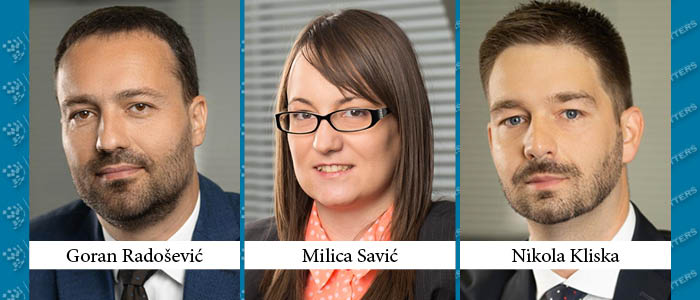Trade secrets are an invaluable asset for many businesses, often encompassing years of research, innovation, and strategic development. Protecting them is paramount, and the legal landscape surrounding this protection is ever-evolving. The European Union Intellectual Property Office (EUIPO) recently published the report “Trade Secrets Litigation Trends in the EU” (June 2023), which provides fresh insights into the state of trade secrets litigation within the European Union.
It is important to understand what trade secrets are and why they need to be protected. Trade secrets are confidential information that gives a business a competitive advantage. Examples of trade secrets include manufacturing processes and marketing strategies. If this information falls into the wrong hands, it can harm a business and give competitors an unfair advantage.
Trade secrets are protected as a form of intellectual property, and this document is significant for the SEE region as well, as all the countries (Albania, Bosnia & Herzegovina, Montenegro, North Macedonia and Serbia) adhered to the stabilisation and association agreements with the EU, providing that all of them need to reach the same standards of intellectual property protection as the one in the EU.
The Evolving Landscape
At its core, trade secrets litigation revolves around the unauthorised use or disclosure of business-critical information that gives a company a competitive edge. This can include anything from customer lists and supplier contracts to formulas, strategies, and processes. Anyhow, different thresholds apply in different sectors. As businesses continue to globalise and digitise, the risk associated with the leakage of such information has grown exponentially.
The EU, with its diverse member states, each having its own legal traditions and practices, presents a unique environment for trade secrets litigation. However, cross-border cases are rare.
Diving Deeper: Statistics
The document provides interesting statistics and trends in various EU countries. It seems that businesses in Italy, Central and Eastern Europe are more prone to initiate proceedings in the field than in other regions. Regarding the targets, the most significant portion of defendants is found in ex-employees. Finally, the report reveals that the infringement claim success rate is 27%.
Case Studies: Learning from the Past
Another intriguing aspect of the document is the inclusion of numerous case studies. These real-world examples of trade secrets litigation can serve as cautionary tales, guiding businesses on potential pitfalls and providing insights into the legal strategies employed by both plaintiffs and defendants. For instance, the report offers the stance of the Spanish court that direct evidence of the infringement is not necessary: “as the unlawful acquisition could be reasonably presumed from the almost identical nature of complex software products, as such striking similarity could not be attributed to coincidence.”.
Concluding Thoughts
Trade secrets are a cornerstone for many businesses, and their protection is not just a legal necessity but a strategic imperative. This report provides a wealth of information on the topic. For businesses, legal practitioners, and policymakers alike, understanding these trends is vital to navigating the complex waters of trade secrets litigation across Europe.
In Serbia, and neighboring countries, the regulation of trade secrets is subject to multiple laws, some of which exhibit inconsistencies. Therefore, it’s essential for companies to approach this issue strategically. They must acquaint themselves with which types of information can genuinely be classified as a business secret under Serbian law. Moreover, businesses should be aware of the necessary legal and factual measures required to ensure their trade secrets receive legal protection. Furthermore, they need to familiarize themselves with the mechanisms available for immediate response and evidence preservation in cases of violations or threats to their proprietary interests.
The information in this document does not constitute legal advice on any particular matter and is provided for general informational purposes only.
By Goran Radosevic and Milica Savic, Partners, and Nikola Kliska, Senior Associate, Karanovic & Partners




